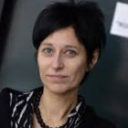How philanthropy can support participatory arts was one of the topics discussed during the EFC conference, held from 22 – 24 May in Paris.
The main results of the research recently conducted by EFC showed us that arts and culture are at the core of philanthropy. Namely, almost half of EFC members, 43 per cent of them, support arts and culture. So, among many relevant discussed issues of contemporary philanthropy and society, the EFC conference introduced and offered a space for discussion and reflection on participatory arts during ‘Facing the global challenges – Arts and culture fostering a free, cohesive and equitable society’ session. Elefterios Kechagioglou, Estelle Zhong Mengual, and Sandra Terdjman together with philanthropists explored what is the role of participatory arts in society as well as how philanthropy can improve its approach to this area.
Arts has dealt with different forms of participation since the early 20th century and the concept of participation in arts has been changing over the time, depending also on the context. Gradually, cultural habits and perceptions of participation in culture have changed. These developments have led citizens as an arts audience to shift from being passive observers to active decision-makers, moving from interpretation of arts as object towards new ways of engagement. In the last two decades, many cultural institutions have integrated the practice of participatory arts in their policies, reshaping relations between artists and institutions on one side and community, which they serve on the other side.
Although the notion of participatory arts seems as self-explanatory, on the contrary it isn’t since participations are coming always in plural, in many shapes, organizing relations between people in many forms. In the artistic and political sense, it is collaboration between artists and citizens, it is a co-creation and co-production process through which all actors share responsibility. In the context of our rapidly changing cultural and social landscapes, participatory arts can be an important channel for experimentation with democratic mechanisms, fostering and empowering citizen engagement and emancipation. In that line, PA can offer safe and affirmative zone for people who do not have anything in common to make decisions together. Insofar, participatory practices provide links to the needs and interests of citizens and assist in avoiding of understanding citizens as a monolith mass, but as plethora of creative individuals potent with possibilities.
Taking into account that the philanthropy world represents a relevant actor in culture, providing financial resources as well as professional support, there is a constant need and desire to improve work of foundations in this area. Understanding the participatory arts as a driver of change, which always has consequence on society, EFC Arts and Culture Thematic Network addressed this topic suggesting some of the possible directions how philanthropy can improve its support to the participatory arts, what might help the project to be powerful in terms on artistic creation and social impact. In order to link artistic excellence and innovation with the specific community and their needs, building new social links with marginal and disadvantaged social groups, it’s necessary to even out the levels on which we can work together. This, obviously seeks the distribution of the decision-making power. To successfully reach this aspect during the selection processes, foundations should pay attention to giving support to projects that are: collaborative and build relations between everyone involved; avoid instrumentalization of arts as well as citizens; focus on process not products; fund hybrid ventures which can be aesthetically and artistically as well as socially relevant; expect long-term approach and taking the pioneering role in developing and supporting new standards and methodology in this area.
As the issue of improving citizens’ participation in arts and culture is one of the main points of the New European Agenda for Culture, adopted by European Commission in May 2018, it seems that participatory can contribute to improvement of crossover between cultural and other sectors.
Dea Vidović is director of Kultura Nova Foundation






Comments (0)